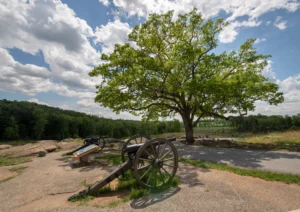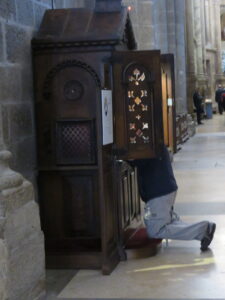Chances are sooner or later you will find yourself sorting through the remnants left behind when someone dies.
I have done this many times, for loved ones, for friends, even for strangers, and it all comes down to three piles:
Give Away. Throw Away. Keep.
Precious memories, piles of paperwork. Family heirlooms.
Give Away. Throw Away. Keep.
A sweater that still has the scent of perfume on it, 7 combs in a bathroom drawer, dining room furniture that witnessed untold family dinners.
Give Away. Throw Away. Keep.
Spare change at the bottom of a purse, a wedding ring, shoeboxes of birthday cards.
Give Away. Throw Away. Keep.
It is an exhausting experience that leaves you determined to go home and clean out that junk drawer STAT.
It is also a sobering experience. As many times as you hear “You can’t take it with you,” it’s still shocking to see how much and what we leave behind. Treasures and trash — although which is which isn’t always apparent to the ones doing the sorting. Beautiful memories and painful reminders. Answers to family mysteries and silence in the face of them. All reduced, in the end, to three piles.
Give Away. Throw Away. Keep.
My most recent encounter with the Ministry of the Three Piles has got me thinking about what we leave behind, and why it all matters.
I am part of a ministry that knits and crochets prayer shawls and blankets. So naturally, I was delighted when we received a large donation of yarn and crafting supplies from a woman who died. There were treasures, to be sure, including my favorite yarn that was discontinued many years ago. And here it was, resurrected! There were plenty of Orphans — yarn remnants that hinted at past creations, but no longer of much use. Any crafter has probably put such scraps in the “Well, I might use it for something” pile, which eventually just becomes The Island of the Misfit Toys. Most of these went to the Throw Away pile.
Then there were the Ghosts. Dozens of projects in various states of completion, many still on the needle. They were the knitting equivalent of Miss Haversham, frozen in time, as if they would be picked up at any moment and brought to beautiful completion. Most of these Ghost projects I sent, reluctantly, straight to the Throw Away pile. Without a pattern, or matching yarn, they would never be more than they were right now — beautiful, unfulfilled promises.
I was painfully aware that I was holding an important part of this woman’s life in my hands, a part of her legacy, and I wanted to honor it. It pained me to throw them away — all these offerings begun in hope, now stillborn, headed for the garbage heap along with kitchen scraps and dried out pens.
But among these Ghosts, there were signs of life, some hope of honoring this woman of considerable talents and prodigious amounts of yarn. There were a few baby sweaters, finished except for a sleeve yet to be sewn on. I found this mysterious — on all of them, just one sleeve remained unattached. It seemed like kind of knitting rapture —in an instant she was taken, and these were Left Behind. For these, I created a new category: To be Redeemed. I put them aside so I could finish what she started.
This woman’s legacy — the Orphans, the Ghosts, and the To be Redeemed — has struck a chord in my soul. I look at my life and wonder what someone will make of what I’ve left behind. Will anyone look at the special candlesticks I inherited from my favorite uncle and cherish them as I do? Will someone wonder why there is a crisp $50 bill in my jewelry box (it was my father’s last birthday gift to me, just weeks before he died). Will anyone try to make sense of the scraps of ideas for writing projects?
What will wind up in my Give Away, Throw Away, Keep piles? Will someone “pick up the thread” for all I’ve left unfinished and bring it to beautiful completion?
I ask these questions because I want to leave something behind of lasting significance, something to say I was here and left something of value, something of beauty, behind.
Unless you are a true nihilist and believe that life is meaningless, I’ll bet you have that same longing. No one (not even nihilists, IMO) wants to go through life just taking up space or to leave this life without having left some mark. It is a longing so deep and so universal, it could only come from God.
God has created us in His image, and that means we share in His nature in some beautiful and mysterious way. God is the great Creator, and He has designed us to create, too, everything from magnificent meals to medical breakthroughs. God delights in beauty (He declares creation “good!”) and we are never more like Him than when we create and take pleasure beauty. God loves justice and shows mercy and He has planted those desires deep within us as well. From the smallest to the most earth shattering, these are things that give us dignity, and meaning, and ultimately, legacy because they reflect Him.
The writer of Ecclesiastes put it this way:
“What gain has the worker from his toil? I have seen the business that God has given to the children of many to be busy with. He has made everything beautiful in its time. Also, he has put eternity into man’s heart.” (Ecclesiastes 3: 9-11)
We have glimpses of that eternity, that legacy, in the here and now. When I knit and pray over a prayer shawl, and hear how the recipient cherishes it, I know that at least in this small way, I am living into eternity.
But we also know that we don’t always know or see the impact our lives make. This side of heaven, we don’t always see our legacy, and in that, we are in good company.
- Moses did not enter the Promised Land.
- David did not build the Temple.
- Peter and Paul and the other first generation evangelists never saw that 2,000 years later, 2 billion people worldwide would proclaim Jesus is Lord.
But while Moses could only look at at the Promised Land from afar, Joshua entered it. While David only dreamed of a Temple worthy of God, Solomon built it. While Peter and Paul were martyred for their faith, countless Christians have continued to witness to the Truth in Jesus Christ. Someone picked up the thread and continued to weave God’s great tapestry.
In the Letter to the Hebrews, the author tells us of great heroes of faith: Noah, Abraham, Sara, Moses and so many others. He lifts up these great believers who nevertheless left behind unfulfilled legacies, their own piles of “To be Redeemed.” Yet,
“These all died in faith, not having received the things promised, but having seen them and greeted them from afar, and having acknowledged that they were strangers and exiles on the earth.” (Hebrews 11:13)
And so, we live here and now, with everything that God has created us for — creation, beauty, a love of justice, a heart of mercy. And one day, we will leave it all behind, leave it to someone else to sort through. And we will then have the privilege of “seeing them from afar” and seeing what God has chosen to be our legacy.









